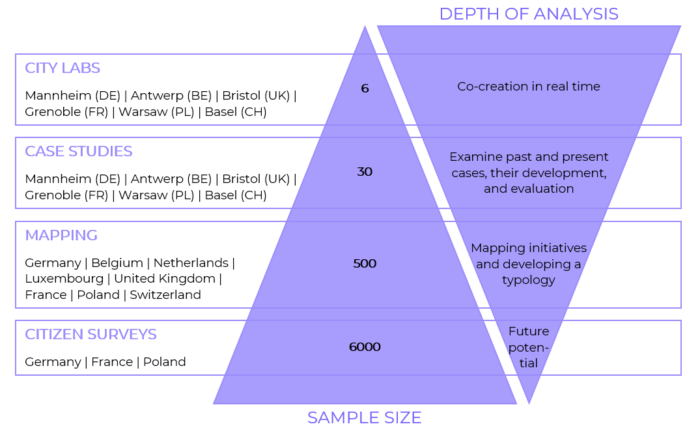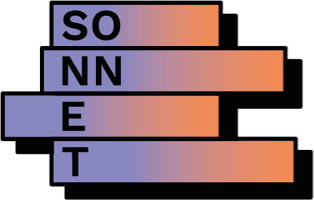Each part of the SONNET project feeds into the overall research goals. All SONNET partners – whether they hail from academic institutions or local government sustainability teams – are project researchers and contribute to knowledge-generation.
This means that SONNET is a transdisciplinary project, combining knowledge from those on-the-ground in cities like civil society, local government staff and policy-makers, with academic insights from fields like sustainability transitions, energy studies and social innovation literature, all while using both “qualitative” and “quantitative” approaches.
While some of the approaches used in SONNET – like the literature reviews, citizen surveys and case studies – are traditional social science methods, the City Labs and research workshops, for example, are part of a new wave of transdisciplinary approaches used to address complex challenges.
The City Labs are one important research output of the project – however, they are not our only output.
For a richer understanding of social innovation in energy transitions (SIE), SONNET took on complementary research projects, including:
- Mapping 500 SIE initiatives,
- 18 in-depth case studies of SIE initiatives in six countries,
- A citizen survey on perceptions and acceptance of SIE and energy transition in Europe,
- Literature reviews, and
- Research workshops.
SONNET research ranges from deep analysis in a few localities, to broader studies with many participants.

- Map the types of social innovations in energy systems (SIEs) in Europe, and organise them into common types.
- Identify and analyse what conditions enable or impede SIE, such as financial conditions, cultural factors, political issues, and more.
- Identify how different types of SIE make energy more secure, sustainable, competitive and affordable for Europe’s citizens, by creating a way to evaluate SIEs.
- Assess the SIE types identified to see which have the potential to best support Europe in achieving its energy goals. Use this to develop business models and identify market opportunities that arise thanks to these SIEs.
- Encourage successful SIE by co-creating strategies to that target governance arrangements, policies, and power dynamics.
- Accelerate sustainable energy transitions by co-creating: SIEs in City Labs; a toolkit with practical recommendations to encourage successful SIEs; and workshops for those involved in SIE from policy makers to academics, students, and citizens.
- What makes SIE examples successful?
- What factors support SIE, and how can they be encouraged? What factors work against it?
- How does social innovation protect people’s livelihoods, and lead to new business models in the energy sector?
- How does social innovation contribute to making energy more secure, affordable and sustainable? Does social innovation lead to more market competitiveness – and if so, how?
- When does social innovation make people more likely to support the transition towards a low-carbon energy system?
Research outputs are spearheaded by Fraunhofer ISI, DRIFT, Grenoble Ecole de Management, Kozminsky University, SPRU, and ZHAW, with knowledge being co-created collaboratively amongst all partners.

 The project has received funding from the European Union’s Horizon 2020 research and innovation programme under grant agreement No 837498.
The project has received funding from the European Union’s Horizon 2020 research and innovation programme under grant agreement No 837498.